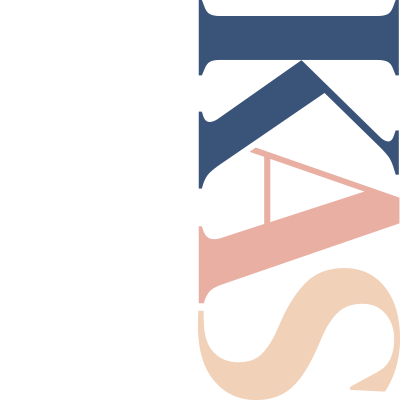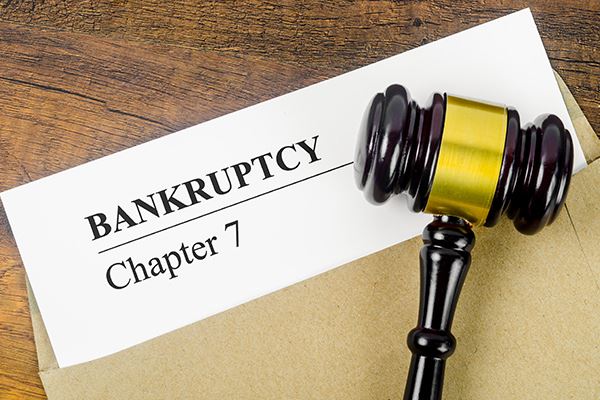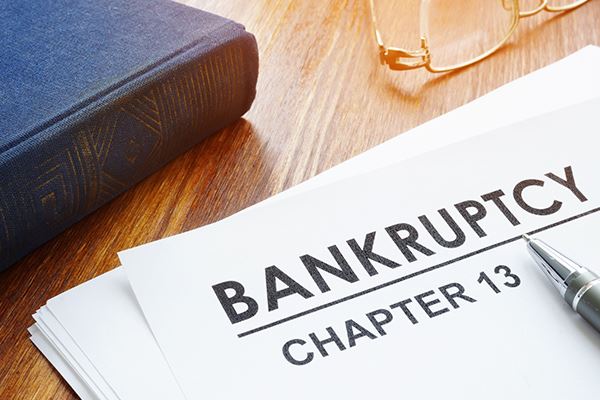

Huntersville Bankruptcy Attorney
Bankruptcy is a legal process. It allows individuals and businesses to eliminate or restructure their debts. Filing for bankruptcy can help you get a fresh start and regain control of your finances.
If you are struggling with debt, you are probably considering bankruptcy. However, the process can be complex and confusing, and you need an experienced attorney on your side to guide you through it.
At Law Office of Kimberly A. Sheek, our lawyer has extensive experience handling all types of bankruptcy cases. Our team understands the challenges you are facing, and we are here to help. We can review your situation, explain your options, and help you determine the best course of action. You can let us handle all the legal details of your case, so you can focus on getting your life back on track.
If you need help with a bankruptcy in Huntersville, call us at (704) 842-9776. Initial consultations are free.
Understanding Bankruptcy
Bankruptcy is governed by federal law, and most cases go through the United States Bankruptcy Court. There are several different types of bankruptcy, and your filing will depend on your situation.
The most common types of bankruptcy are:
Chapter 7: Also Called “Liquidation Bankruptcy”
This is the most common form of bankruptcy for individuals. In a Chapter 7 case, most of your assets are sold to pay off your debts. However, many types of property are exempt and cannot be sold.
Once your assets have been liquidated, or sold off, the court discharges your remaining debts. Discharging means you are no longer legally obligated to these debts, and your creditors cannot take any further action to collect them.
Chapter 13
This bankruptcy allows individuals to restructure their debts and create a repayment plan. The plan typically lasts three to five years. During this time, you make monthly payments to a bankruptcy trustee. The trustee then distributes the payments to your creditors.
At the end of the plan, the court will discharge any remaining unsecured debts. Chapter 13 is a good option for individuals who have a regular income and want to keep their property.
Chapter 11
This bankruptcy allows businesses to restructure their debts and continue operating. It is also available to individuals, but it is rarely used for this purpose.
In a Chapter 11 case, the debtor proposes a reorganization plan. This plan outlines how they will repay their creditors. The court and the creditors must approve the plan before going forward.
Once the plan is approved, the debtor makes regular payments to a bankruptcy trustee, who then distributes the funds to the creditors.
Chapter 11 is a complex and expensive process, and typically, only large businesses use it.
The Bankruptcy Process
The bankruptcy process begins when you file a petition with the United States Bankruptcy Court. This petition includes detailed information about your debts, assets, income, expenses, and financial transactions.
You must also provide a copy of your most recent tax return. Once you file your petitions, the court issues an automatic stay. This order stops all collection actions against you.
After filing your petition, you must complete the following steps:
Credit Counseling
You must complete a credit counseling course online or over the phone. The class typically takes about an hour. Upon completion, you receive a certificate that goes into your court filing.
Meeting of Creditors
About a month after your petition is filed, you must attend a meeting of creditors. The bankruptcy trustee, the person responsible for overseeing your case, conducts the meeting.
During the meeting, the trustee asks you questions about your financial situation and your bankruptcy petition. Creditors also have the opportunity to ask you questions, but they rarely attend the meeting. The meeting typically lasts about 10 minutes, and your attorney will be there to represent you.
Financial Management Course
Before discharging your debts, the court requires you to complete a financial management course. It is similar to the credit counseling course, and you can do it online or over the phone. Once you have completed the course, you will receive a certificate that must be filed with the court.
Debt Discharge
Once you have completed the financial management course, the court can discharge your debts. This discharge means you are no longer obligated to pay the designated debts, and your creditors cannot take any further action to collect them.
Remember, not all debts are dischargeable in bankruptcy. For example, you cannot discharge child support, alimony, student loans, or most tax debts. If you have a significant amount of non-dischargeable debt, our team can help you find alternatives to bankruptcy.
To meet with our Huntersville bankruptcy lawyer, contact us online. Your first consultation is completely free.
Find Debt Relief Through Bankruptcy
-
How is my credit score affected after bankruptcy?
Many people are afraid that filing for bankruptcy can ruin their credit scores. While bankruptcy will lower your score and stay on your report for several years, most people who are in debt already have low scores due to the outstanding debt. Doing nothing about the debt will only make your credit score worse.
Bankruptcy can resolve your debt and provide you with a fresh start to begin rebuilding your credit score. My law firm can provide you with tips on how to manage post-bankruptcy life and ways to restore your credit score. Call the Law Office of Kimberly A. Sheek at (704) 842-9776 today.
-
What debts can bankruptcy discharge?
Unsecured debt such as credit card bills, medical bills, and personal debt can be discharged through bankruptcy. It will either be discharged completely or you may need to repay a portion of the debt.
-
Can I keep my home and car in bankruptcy?
In Chapter 13, nearly all debtors are able to keep their homes and cars. In Chapter 7, you can keep your home and car if your equity does not exceed the exemption limits and you are able to maintain the payments. An attorney can review your unique scenario and give you a better idea of what you can expect to keep.
-
How does bankruptcy work?
Bankruptcy allows debtors to discharge all or nearly all of their unsecured debt, depending on the type of chapter they file. Chapter 7 will generally wipe out most debt after nonexempt assets are liquidated, while Chapter 13 will require repayment plans to pay back a portion of the debt.






